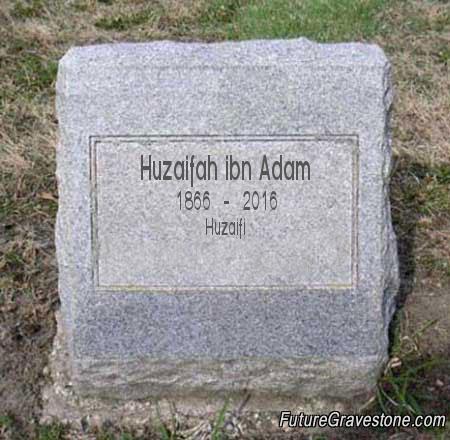Huzaifah ibn Adam
IB Expert
- Messages
- 2,252
- Reaction score
- 170
- Gender
- Male
- Religion
- Islam
بسم الله الرحمان الرحيم
وضع عمر على سريره ، فتكنفه الناس يدعون ويصلون قبل أن يرفع ، وأنا فيهم ، فلم يرعنى إلا رجل آخذ منكبى ، فإذا على فترحم على عمر ، وقال ما خلفت أحدا أحب إلى أن ألقى الله بمثل عمله منك ، وايم الله ، إن كنت لأظن أن يجعلك الله مع صاحبيك ، وحسبت أنى كنت كثيرا أسمع النبى - صلى الله عليه وسلم - يقول ذهبت أنا وأبو بكر وعمر ، ودخلت أنا وأبو بكر وعمر ،
وخرجت أنا وأبو بكر وعمر
وضع عمر على سريره ، فتكنفه الناس يدعون ويصلون قبل أن يرفع ، وأنا فيهم ، فلم يرعنى إلا رجل آخذ منكبى ، فإذا على فترحم على عمر ، وقال ما خلفت أحدا أحب إلى أن ألقى الله بمثل عمله منك ، وايم الله ، إن كنت لأظن أن يجعلك الله مع صاحبيك ، وحسبت أنى كنت كثيرا أسمع النبى - صلى الله عليه وسلم - يقول ذهبت أنا وأبو بكر وعمر ، ودخلت أنا وأبو بكر وعمر ،
وخرجت أنا وأبو بكر وعمر
رواه البخاري
Hadhrat `Abdullaah ibn `Abbaas رضي الله عنه narrates, "When (Hadhrat) `Umar was placed upon his bed (after he had passed away), and the people gathered around him, to make Du`aa for him and perform the Janaazah Salaah for him before his body was taken away, I was among them. I felt someone (from behind) put his hands on my shoulders. I turned around and saw that it was (Hadhrat) `Ali. He made Du`aa (to Allaah) to have mercy upon (Hadhrat) `Umar and thereafter said, "You have not left behind you anyone whose deeds I would like to meet Allaah with more than I would like to meet Allaah with your deeds. By Allaah! I always knew that Allaah would place you with your two companions. So many times I used to hear Nabi صلى الله عليه وسلم saying, "I, Abu Bakr and `Umar went." "I, Abu Bakr and `Umar entered." "I, Abu Bakr and `Umar left." [Narrated in Saheeh al-Bukhaari in the chapter of the Virtues of the Sahaabah.]




